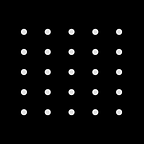The Next Frontier: Blockchain meets Object Capabilities
News on development of GRAVITY
We are very excited to tell you about the next steps in the development of GRAVITY, a new computational network for smart contracts (formerly known as Agoric and DJS).
Welcome Duke and Harlan!
We have two new superb developers who joined our team, Duke Jones and Harlan Wood! They will be working with lead architect, Jorge Lopez, to develop both GRAVITY and the SPACE platform built on it.
Duke has previously worked as Senior Software Engineer for the PlayStation Network and Amazon, amongst others, and joins us as technical lead. He has lived and worked in the Bay Area for his entire adult life, engineering products at both mega-corp and startup scale.
Harlan is the technical architect of Trust Graph (decentralized reputation interchange), Core Network (visualization-first decentralized social network), and helped co-found CoMakery (equity tracking and revenue distribution on Ethereum).
Warmly welcome Duke and Harlan!
While GRAVITY is the first fully fledged interoperable and verifiable protocols creation tool, SPACE is a governance and economic logic design platform: a next generation DAO creation engine — a platform for the easy and modular creation of programmable organizations. For Economic Space Agency, SPACE with GRAVITY is a match made in heaven: the features that GRAVITY offers — especially modularity and scalability — are exactly the ones that we have envisioned for the template-able economic spaces we want to build on the SPACE platform. This is not just coincidence, as Jorge Lopez has from the beginning thought about GRAVITY in terms of decentralized financial applications, even though GRAVITY can do much more.
The Next Frontier: Blockchain meets Object-Capabilities
On July 3rd, GRAVITY is coming out of the garage, and co-hosting a symposium with the Foresight Institute at Alamo Square, SF, entitled, “The Next Frontier: Blockchain meets Object-Capabilities.” The panelists include Mark S. Miller, Zooko Wilcox, Brian Warner, and Jorge Lopez, and the discussion will be moderated by Michael Casey from MIT’s Digital Currency Initiative. For us, starting this dialogue is very important, because GRAVITY implements security and trust/trustlessness in a very different way compared to the more familiar approaches in blockchains like Bitcoin and Ethereum. The object capability framework, we feel, is less well-known than it deserves to be, and we hope that this event can create awareness of its possibilities by explaining how it expands the way in which distributed computation and ledger systems are currently seen.
We know that through this conversation we can usher in an unexplored era of human collaboration.
The event explores how blockchain technologies can leverage the secure computation model of object capabilities to expand its reach, capacity, and interoperability towards open web platforms and open web infrastructure, without forsaking security and data sovereignty. Current blockchains provide trustless third parties and the ability to operate smart contracts on a public ledger. Meanwhile, object capabilities are based on transmitting tokens of authorities and rights that allow token-holders the ability to securely perform operations in a distributed system that is private, granular, and scalable. Blockchains make compromising information incredibly expensive through massive replication of data. Capabilities extend the promise of security through more light-weight mechanisms such as “Proof of Authority” and greater decentralization at the application layer. If Bitcoin is a shared global spreadsheet and Ethereum is a global computer, we believe that capabilities as implemented in GRAVITY have the promise to provide an operating fabric that can bring on the networked PC revolution of distributed computing.
GRAVITY in a nutshell
GRAVITY development is still in its early days, but we already feel that what we are coding and designing is something special. It’s a great time to get involved at the ground floor, to rethink blockchain-based applications and computing platforms, and to code-up some fundamental architecture.
The goal is set: GRAVITY is to be a resilient, distributed smart contracts computational network that allows multiple independent ledgers with tunable replication and performance parameters, while maintaining easy interoperability among constellations of autonomous agents. In addition to a verifiable self-executing substrate, the Space platform that we are building concurrently relies heavily on GRAVITY’s features to enable its economic ecosystem. One of GRAVITY’s most distinguishing features is logical decentralization while allowing network wide transaction consistency, establishing the following properties:
Autonomy: In GRAVITY, the Virtual Machines that execute the contract code are autonomous and self-governed while retaining interoperability.
Privacy: VMs may have a private state and engage in private contracts, where only the parties to the contract have access rights to the shared state.
Scalability: Networks of interoperable logically distinct VMs inherit the natural scalability properties of networks.
Speed: Since there is no one single global state to replicate and agree upon, consistent, high speed commits, among autonomous VMs/Agents may be achieved through distributed transactions.
You can help by joining GRAVITY development in Github, subscribing to the developer mailing list, and giving your feedback on the early-draft white paper.
The discussion on the July 3rd event will be available at our Facebook & YouTube pages. We’ll also be live-tweeting during the event. And, as always, you are welcome to our slack.
